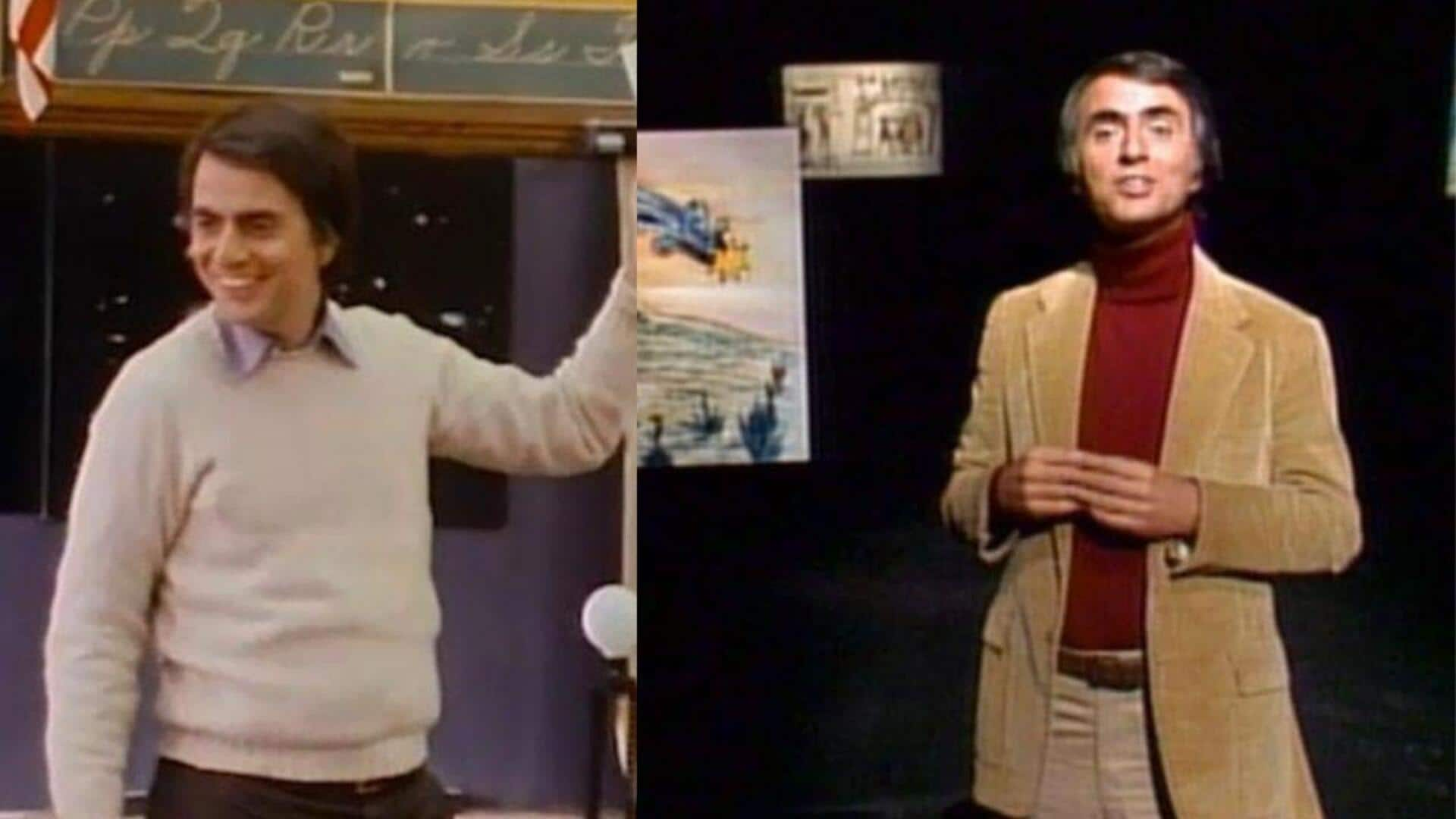
How Carl Sagan's 'Cosmos' changed science on TV forever
What's the story
Carl Sagan's Cosmos: A Personal Voyage is the most groundbreaking television series of all time. Airing in 1980, it brought complex scientific concepts to the layman's grasp, rendering science accessible, engaging. It explored the universe's vastness, life on Earth, and humanity's place in the cosmos. Through its 13 episodes, Cosmos inspired a generation of scientists, thinkers by presenting science as an exciting journey of discovery.
#1
The power of storytelling in science
Carl Sagan understood the power of storytelling in making science relatable. By wrapping narratives around facts, he captured the viewers's imagination. This way, he demystified complex ideas (like evolution, space-time) for a wider audience. His knack for telling stories made science personal and relevant, urging the viewers to explore more.
#2
Visualizing complex concepts
The series used cutting-edge visual effects of its era to depict abstract scientific concepts. These graphics made it easy for viewers to comprehend things like black holes and the Big Bang theory without requiring a Ph.D. By using graphics so well, Cosmos set the bar for future educational shows, trying to simplify complex topics.
#3
Emphasizing human curiosity
Sagan also emphasized human curiosity as a driving force behind scientific exploration. He spoke about how questioning our surroundings leads to discoveries about ourselves and the universe. This focus on curiosity also inspired many a viewer to pursue careers in science, contributing significantly to fields such as astronomy and biology.
#4
Addressing global challenges through science
The series also tackled pressing global issues such as environmental degradation and nuclear threats, albeit through a scientific lens. By addressing these issues in the context of cosmic perspective, Sagan made audiences think about the long-term impacts on humanity's survival. This further emphasized the significance of using science responsibly for the betterment of society.